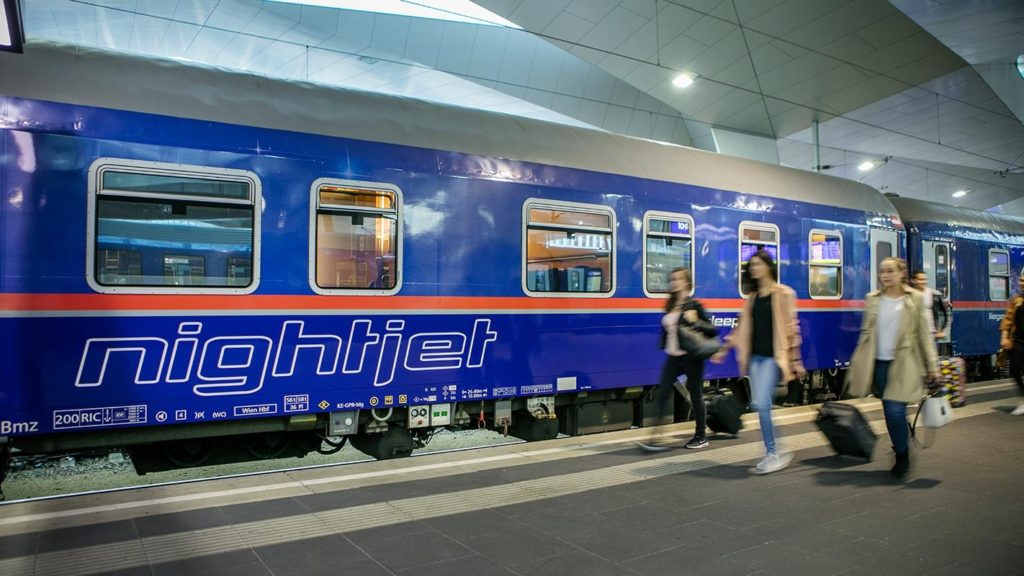A number of night-train destinations from Brussels have been announced recently, but none of the services will last very long unless there is substantial new investment in rolling stock.
That’s the conclusion of the non-profit organisation Back on Track, who describe themselves as “a collective of Belgian citizens who campaign for the return of the night trains”.
At one time, not at all long ago, it was possible to arrive at the South station in Brussels and get on a night train to destinations including Warsaw, Moscow, Copenhagen, Milan and Rome. Nowadays, even a direct train to Amsterdam is only possible if you pay an expensive premium for Thalys or Eurostar.
But those train routes were faced with cut-throat competition from cheap airlines and bus services like FlixBus, and barely made it into the new millennium.
The night trains had many advantages, all the same: no hours spent getting to and waiting in airports, varying levels of comfort according to how much you were willing to pay, and travel to a destination that was in the city you were heading for, rather than an hour’s bus-ride out of town.
Brussels, Back on Track argue, is in the perfect position to form a hub for a night train network. Their ambitious plan envisages five main routes:
Paris - Brussels - Hamm - Hamburg or Berlin.
Brussels - Hanover - Malmö or Warsaw or Prague.
Amsterdam or Brussels - Cologne - Nuremberg - Vienna or Munich.
The Hague - Brussels - Luxembourg - Basel - Milan – Venice.
The Hague - Brussels - Mons - Avignon – Nice or Barcelona.
But none of that ambitious planning is of any use, the collective says, without massive investment. While governments are giving huge subsidies to airlines, trains are being ignored at best, and starved to death at worst.
In Spain, for example, the rail authority Renfe cut three lines from its rail network with one hand, while handing out one billion euros to airlines Vueling, British Airways and Iberia.
One small crumb of comfort came when the Austrian rail company ÖBB decided to extend its Vienna-Cologne Nightjet route to Brussels, reinstating a link that was last used 16 years ago.
Last week in the Benelux parliament, which is made up of 21 members of the various parliaments of Belgium, 21 members taken from the two Dutch houses and seven from the Luxembourg parliament, Ecolo politician Nicolas Parent made a strong plea for cooperation among the three neighbours in order to strengthen the long-distance rail network.
His motion called on the three countries to develop a common vision on night trains, to promote cooperation between the different operators and to support the purchase of rolling stock.
"The latter in particular is the biggest obstacle for new night trains," Alexander Gomme of Back on Track told Bruzz.

